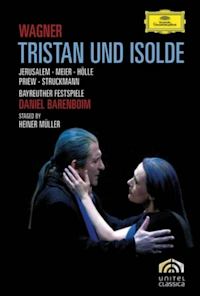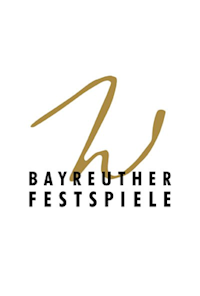Daniel Barenboim reports how he won the German playwright Heiner Müller for the Bayreuth production of "Tristan" after Patrice Chéreau had canceled for personal reasons: "I was in Berlin and went to Heiner Müller's 'Hamletmaschine'. That was in East Germany -Berlin, before reunification at the end of March 1990. I then met him, and quite spontaneously, between his seventh and eighth whiskey and our third cigar together, around two o'clock in the morning I asked him: 'Wouldn't you like to direct Tristan with me?' He replied: 'Are you crazy or desperate?' To which I said: 'Neither one nor the other.'
We then talked and I told him why and what had impressed me so much about his production of the 'Hamlet Machine'. He thought about it for a few days and then told me that if Wolfgang Wagner accepted him, he would be happy to do it. I then made an appointment with Wolfgang, Gudrun and Heiner Müller.
There were four of us in Berlin and they got along really well.
At the end of the evening, Wolfgang Wagner said something very sympathetic to me: 'Actually, I'm very sad,' he said. 'How so? You got along so well with him!' I asked. 'Yes, but that's such a great idea that should have come from us!'
I found that very generous and personable.
Working with Heiner Müller was of course completely different. He expected a lot from the singers. He wasn't as active as Chéreau, Ponnelle or Kupfer, but in the end this Tristan has also become a bit of a legend. People were smitten."
The premiere of this "Tristan" production at the 1993 Bayreuth Festival was met with that mixture of enthusiastic approval and indignant rejection that is the usual indicator of Green Hill success. Daniel Barenboim conducted the work as gripping as it was soulful. Heiner Müller, who died in 1995, directed the film. The stage designs were created by Erich Wonder, with whom Müller had worked for many years, and the costumes were designed by the Japanese fashion designer Yohji Yamamoto. The huge success of Siegfried Jerusalem and Waltraud Meier in the title roles was not only limited to the premiere year, but also continued in the following years. Erich Wonder created impressive rooms by projecting colors and shapes that change according to the mood. In Müller's elegantly reserved interpretation, the overwhelming passion is only hinted at by small gestures. In the great love duet, Tristan and Isolde do not lie in each other's arms, but stand back to back and side by side and only touch each other gently on the fingertips.
The festival orchestra follows him with flaming colors and grandiose tension. Together they erect a 'Tristan' monument of harrowing proportions." (Die Welt, 7/29/95)
he kept even the most violent outbursts under control. [...] Waltraud Meier's Isolde overwhelmed with even greater intensity, luminosity and beautiful voice, although last year the singer's performance seemed hardly to be surpassed." (Frankfurter Allgemeine Zeitung, July 28, 1995)
"In general, I don't know why Müller's production kicked up so much dust at the premiere two years ago: isn't the consistent refusal of the great intoxication of love inherent in the work? And doesn't Wagner's utopia of total oneness appear all the stronger the less it is fulfilled? [...] a staging based on 'respect and care'... In my opinion, its aesthetic quality is primarily determined by Erich Wonder's light spaces." (Opera World, September 1995)
"My starting point is this: if something happens in the theater or is presented in the way I can see it in the tram, then I prefer to stay on the street. Theater is only interesting when it creates a translation into another reality, To that extent, theater is always an affront to reality, if it's good, and to that extent, reality is also material for suggesting other possibilities.(Heiner Müller in an interview in Opernwelt, September 1993)
"No, the longing for that Death is the longing for another life. And that is the revolutionary potential of 'Tristan'." (Heiner Müller on the question of Tristan's nearness to death in an interview in Opernwelt, September 1993)
On the journey from Ireland to Cornwall, in fabulous time. Tristan brings the Irish king's daughter Isolde to Cornwall on his ship. She is to marry his uncle, King Marke, to seal the peace between the two countries. Isolde once nursed Tristan back to health and has felt a strong affection for him ever since. Since this love must not exist, she decides to prepare a death potion for herself and Tristan. However, Isolde's confidant Brangäne hands them a love potion, which awakens an overwhelming passion for each other in both of them. At Marke's castle, Isolde, now the king's wife, meets her lover again. The king and Melot surprise them both. The king is too shaken to take revenge, but Tristan allows Melot to severely wound him. His faithful friend Kurwenal takes Tristan to his father's castle in Brittany. Isolde's ship approaches, Tristan staggers towards his beloved and dies in her arms. Marke, who has learned the secret of the love potion from Brangäne, appears too late to unite the lovers. Kurwenal and Melot give each other death. Isolde follows her lover into the realm of the night.




